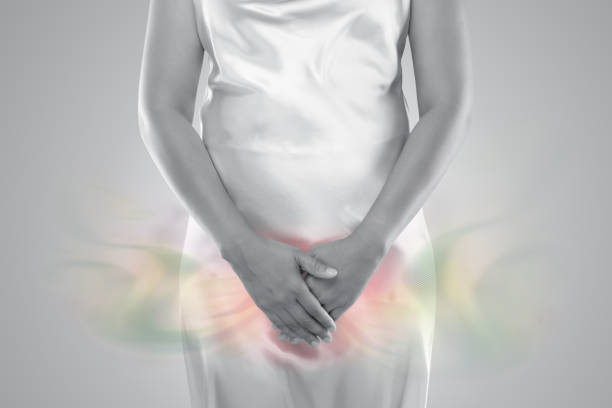In the world of urban legends and internet myths, a peculiar question has circulated: does Dr Pepper make your vag smell? Let’s dive into this unconventional inquiry, separating fact from fiction, and exploring the science behind this curious claim.
The Dr Pepper Conundrum: Addressing Popular Beliefs
Breaking Down the Rumors
Myth or Reality?
Rumors regarding Dr Pepper’s alleged impact on vaginal odor have circulated online, prompting speculation and curiosity. In this section, we dissect the myth and analyze whether there is any scientific basis to support or debunk the claim.
Examining Ingredients
The Dr Pepper Formula
To understand the potential influence on bodily odors, we delve into the ingredients of Dr Pepper. Does the unique blend of flavors and additives have the capacity to affect the delicate balance of vaginal scent? Let’s uncover the truth behind the beverage’s composition.
Vaginal Health 101: Understanding the Factors
Natural Variations
The Normal Spectrum
Vaginal odor is a natural aspect of women’s health, with variations influenced by factors such as diet, hormonal changes, and hygiene practices. This segment explores the normal spectrum of vaginal scents to establish a baseline for comparison.
Dietary Impact
Can Beverages Influence Odor?
Analyzing the potential impact of beverages on vaginal odor requires an exploration of dietary factors. Does what you consume, including drinks like Dr Pepper, play a role in altering the natural fragrance? Let’s unravel the connections between diet and bodily scents.
Scientific Perspectives: Can Dr Pepper Make a Difference?
The Acidic Element
pH Levels and Vaginal Health
Scientifically, the pH balance of the vagina is crucial for maintaining optimal health. We investigate whether the acidity of Dr Pepper can disrupt this balance and potentially contribute to changes in odor. An examination of pH levels provides insights into the intricacies of vaginal health.
Microbial Influences
Gut Microbiota and Odor
The link between gut health and bodily odors is established, but can the microbial composition influenced by beverages like Dr Pepper extend its impact to vaginal scent? This section explores the intricate relationship between gut microbiota and the olfactory nuances of the female anatomy.
Real Women, Real Experiences: Anecdotal Evidence
Candid Conversations
Stories from Individuals
To provide a holistic view, we gather anecdotes and personal experiences from women who have explored the connection between Dr Pepper consumption and vaginal odor. Their candid stories shed light on the subjective nature of this phenomenon.
The Conclusion: Dispelling Myths and Embracing Facts
In conclusion, the question “Does Dr Pepper make your vag smell?” navigates through a maze of speculation, science, and personal experiences. While urban legends may capture attention, a nuanced understanding of vaginal health, dietary impacts, and scientific perspectives reveals that the influence of a beverage like Dr Pepper on vaginal odor is minimal, if existent at all. It’s crucial to approach such claims with a discerning eye, separating myth from reality for a more informed perspective on women’s health.
Frequently Asked Questions (FAQs) about Dr Pepper and Vaginal Odor
Q1: Does Dr Pepper really affect vaginal odor?
A1: There is no scientific evidence to support the claim that Dr Pepper directly affects vaginal odor. Vaginal scent is influenced by various factors, and while diet plays a role, it’s important to approach such claims with a critical perspective.
Q2: Can beverages like Dr Pepper alter the pH balance of the vagina?
A2: The pH balance of the vagina is sensitive, but there is no conclusive evidence suggesting that beverages like Dr Pepper can significantly impact this balance. Vaginal health is influenced by a combination of factors, and diet is just one element.
Q3: Are there specific ingredients in Dr Pepper that could cause changes in vaginal odor?
A3: The ingredients in Dr Pepper, including carbonated water, high fructose corn syrup, and various flavorings, are not known to directly impact vaginal odor. Changes in bodily scents are more likely related to individual variations and overall health.
Q4: What is a normal range for vaginal odor?
A4: Vaginal odor is a natural aspect of women’s health, and there is a broad spectrum of normal variations. Factors such as hormonal changes, diet, and hygiene practices can influence the range of vaginal scents.
Q5: Can the acidity of Dr Pepper disrupt vaginal pH levels?
A5: While Dr Pepper is acidic, the amount consumed is unlikely to significantly alter vaginal pH levels. The body has robust mechanisms to maintain pH balance, and changes are usually attributed to more substantial factors.
Q6: Is there any connection between gut health influenced by Dr Pepper and vaginal odor?
A6: While gut health is linked to overall well-being, there is limited evidence connecting the gut microbiota influenced by beverages like Dr Pepper to changes in vaginal odor. The relationship between these two aspects is complex and not well-established.
Q7: What should women be mindful of regarding vaginal health?
A7: Women should prioritize overall health, including maintaining good hygiene practices, staying hydrated, and having a balanced diet. If concerns arise about vaginal odor or health, consulting a healthcare professional is recommended for personalized advice.
Q8: Can anecdotal evidence be considered reliable in understanding the impact of Dr Pepper on vaginal odor?
A8: Anecdotal evidence provides personal perspectives, but it is not scientifically conclusive. Individual experiences may vary, and relying solely on anecdotes may not offer a comprehensive understanding of the broader factors influencing vaginal health.
Q9: Are there other beverages or foods known to impact vaginal odor?
A9: While diet can play a role in bodily scents, there is no extensive evidence linking specific beverages or foods directly to changes in vaginal odor. Maintaining a balanced and healthy diet is generally recommended for overall well-being.
Q10: How should individuals approach claims linking specific products to bodily changes?
A10: Individuals should approach such claims with a critical mindset, seeking information from reputable sources and considering scientific evidence. It’s essential to prioritize overall health and consult healthcare professionals for personalized advice if concerns arise.
